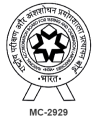Frequently Asked Questions
How should I prepare for neurosurgery?
Preparing for neurosurgery requires a few important steps. Our doctor will provide you with pre-operative instructions, which may include stopping certain medications, undergoing pre-surgery tests, and arranging post-surgery care at home. Fasting may be required for a few hours before surgery, especially if anesthesia is involved. Please follow our doctor’s instructions closely, and reach out if you have questions or need further guidance.
What should I bring to the hospital on the day of my surgery?
On the day of surgery, bring your identification ID, health insurance information, a list of current medications, and any prescribed items such as your neck support or compression stockings if advised. Additionally, bring personal items like comfortable clothing and any mobility aids if needed for your post-surgery period. Please arrange for someone to accompany you, as you may require assistance immediately after the procedure.
What happens during a typical neurosurgical procedure?
Neurosurgery involves various specialized techniques depending on the condition being treated. Our surgeon may use minimally invasive methods, advanced imaging, or microsurgery tools to access the brain, spine, or nervous system safely. The surgery length varies by procedure, but our neurosurgical team will discuss each step with you beforehand to help you feel informed and reassured.
How long does a neurosurgery procedure usually take?
The duration of neurosurgery depends on the complexity and type of procedure. Some procedures can take a few hours, while more complex surgeries may take longer. Our neurosurgeon will provide an estimated time for your specific surgery and keep your family updated throughout the procedure. Our team’s primary focus is on your safety and precision at every step.
What should I expect during recovery after neurosurgery?
Recovery from neurosurgery can vary by procedure and patient. You may experience mild discomfort, headaches, or fatigue for a few days post-surgery. In some cases, physical therapy or rehabilitation may be needed to help you regain strength and mobility. Our neurosurgical team will provide you with a customized recovery plan, including advice on pain management, activities to avoid, and when to return for follow-up care.
When can I resume normal activities and work after neurosurgery?
Your return to daily activities depends on the type of neurosurgery and your overall health. Most patients are encouraged to take it easy for a few weeks, gradually resuming light activities as directed by our doctors. Returning to work may be possible within a few weeks to a few months, depending on the surgery and your progress in recovery. Our surgeon will advise on an appropriate timeline and support your rehabilitation needs.
What are the potential risks associated with neurosurgery?
Like all surgeries, neurosurgery has certain risks, including infection, bleeding, blood clots, or reactions to anesthesia. Specific risks vary depending on the type and location of the surgery. While complications are rare, our neurosurgery team takes every precaution to minimize risks and ensure your safety. Our surgeon will discuss potential risks with you and answer any questions you may have prior to your procedure.
What are the benefits of undergoing neurosurgery for my condition?
Neurosurgery can provide significant benefits, such as relieving chronic pain, improving mobility, restoring neurological function, or removing tumors. Many patients experience a better quality of life following neurosurgery, and our team is dedicated to helping you achieve the best possible outcome. Our neurosurgeon will discuss how the procedure aligns with your treatment goals and quality of life.
Will I need follow-up appointments after my neurosurgery?
Yes, follow-up appointments are essential after neurosurgery to monitor your healing and address any post-operative concerns. During these visits, our neurosurgeon will assess your progress, discuss any necessary physical therapy, and make recommendations for further recovery. These check-ups ensure a smooth recovery and allow us to support your journey back to health.



